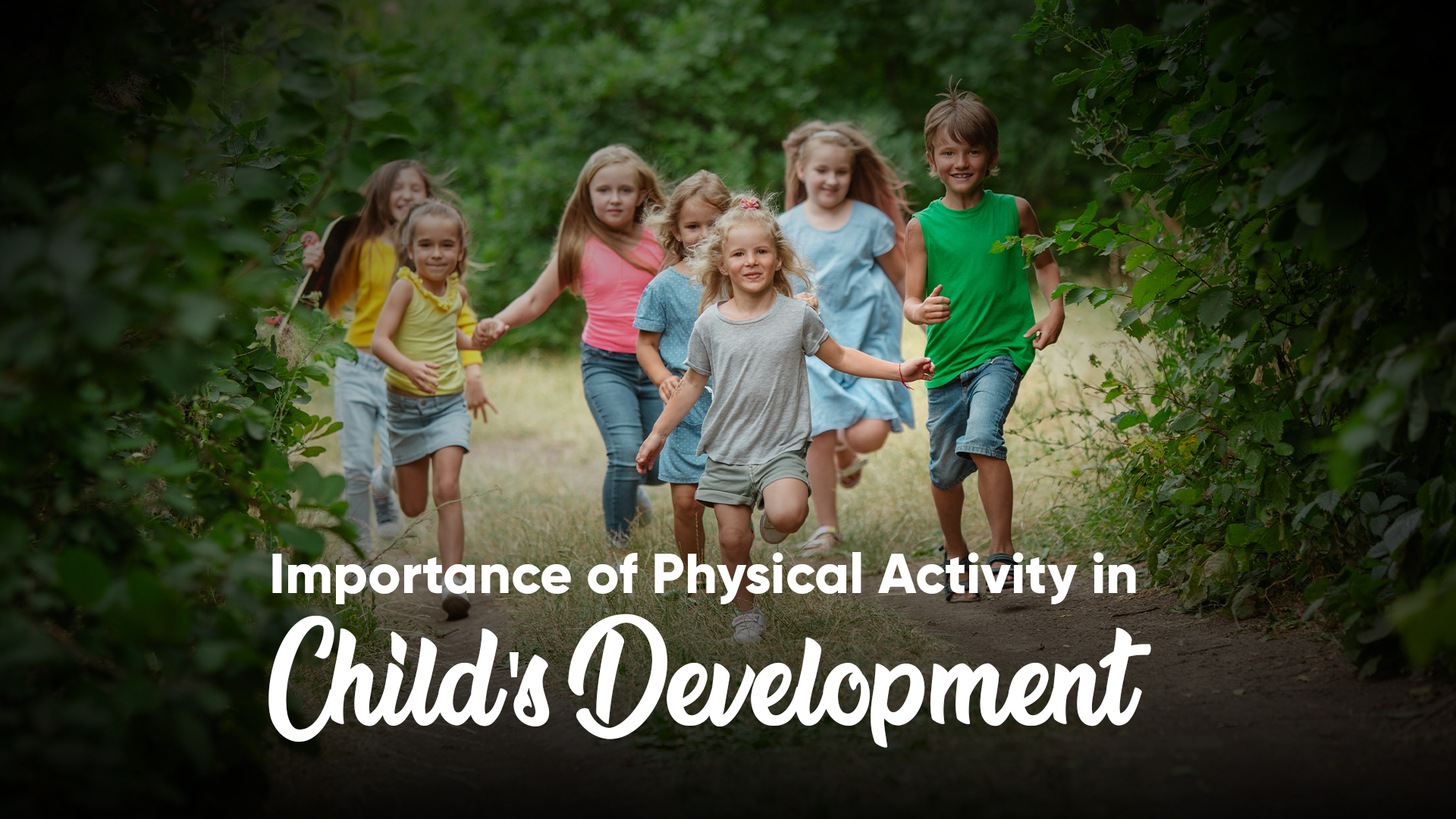
Do you know why modern-age children are spending more time indoors than outdoors? The answer is smart gadgets and schedules that are predetermined.
In today’s digital age full of screens and schedules, it is easy for children to spend more time indoors than outside. They don’t have an idea of the enjoyment of outdoor activities. This is the reason why parents, while giving comfort to their children, are unknowingly hindering the child’s development physically and mentally. And remember that extra love, care, and pampering makes them lazy.
But did you know that encouraging your child to be physically active is one of the best gifts you can give them? Physical activity isn’t just about keeping your little one moving; it’s about nurturing their growth and childhood development in ways that go beyond the playground and gadgets.
Why is Physical Activity Important for a Child’s Development?
Now let’s get started.
According to doctors, children under 3-5 years old need to be active the whole day, and children under 6-17 years old need to stay active for 1 hour daily. In the United States, almost 1 in 3 children do not get enough physical activity per day, which is equivalent to missing out on almost all recreational activities.
So, why is getting active so important for a child’s development?
Let’s find out!
- Building Strong Bodies: Just like adults, children need regular exercise to stay healthy and strong. Physical activity helps them build strong muscles and bones. This improves coordination & balance and boosts overall fitness levels.
- Healthy Heart: Active parenting promotes your child’s lifetime heart health from an early age. Frequent exercise maintains heart health, reduces the risk of heart disease, and improves blood circulation.
- Brain Boost: It may surprise you to learn that exercise benefits the brain and the body! Children who play actively develop cognitive abilities like creativity and problem-solving, increase focus and concentration, and stimulate their brains.
- Emotional Well-being: Not only is physical health dependent on being active, but emotional health also depends on it. Stress, anxiety, and depressive symptoms can be reduced by exercising as it releases endorphins (feel-good hormones). Playing with others also helps a child develop their social skills and friendships. This can enhance their sense of satisfaction and belonging.
The Growing Concern of Childhood Obesity
While physical activity is crucial for a child’s development, it’s essential to address a concerning issue: childhood obesity.
According to recent statistics, childhood obesity has become a significant health problem globally. It is affecting millions of children worldwide. In the United States alone, approx. 19% of children and adolescents aged 2-19 years are obese.
Obesity in childhood not only increases the risk of chronic health conditions like type 2 diabetes, high blood pressure, and heart disease but also affects mental well-being, self-esteem, and childhood development. The good news is that regular physical activity, combined with a balanced diet, can help prevent and manage childhood obesity.
How Can You Encourage Physical Activity for Your Child’s Development?
Here, the following are a few ways through which you can easily encourage physical activity in your children’s lives –
- Lead by Example: Children learn best by example, so make physical activity a family affair. Go for family walks, bike rides, or play active games together in the backyard.
- Make it Fun: You can keep physical activity enjoyable by engaging them in games, sports, and creative play. Let your child choose activities they enjoy, whether it’s dancing, swimming, or kicking a ball around.
- Limit Screen Time: Set limits on screen time and encourage outdoor play instead. Be it football, badminton, or exploring nature pathways, the great outdoors offers multiple opportunities for active fun.
- Be Supportive: Celebrate your child’s accomplishments, no matter how small, and encourage them to try new things. To keep them motivated, give them praise for their efforts and constructive criticism.
- Stay Consistent: Include exercise in your child’s everyday routine. Every day, try to get in at least 60 minutes of moderate-to-intense exercise, broken up into shorter periods if necessary.
The Final Word on Children’s Development
Every facet of a child’s development, including their emotional and cognitive abilities as well as their physical health and fitness, benefits from physical activity. You are preparing your child for a lifetime of health and enjoyment by encouraging them to be active from an early age and by giving them opportunities for play and discovery. Let’s move ahead and turn each day into an exciting journey that involves both enjoyment and fitness!